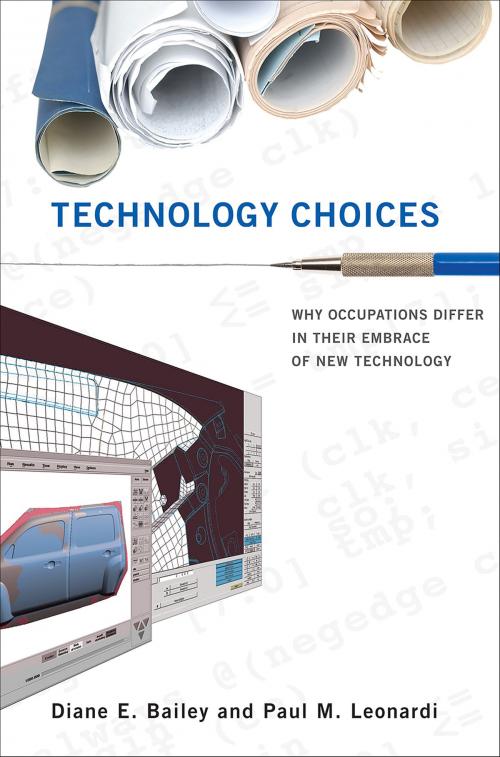Technology Choices
Why Occupations Differ in Their Embrace of New Technology
Nonfiction, Reference & Language, Language Arts, Library & Information Services, Science & Nature, Technology, Social Aspects, Reference| Author: | Diane E. Bailey, Paul M. Leonardi | ISBN: | 9780262323697 |
| Publisher: | The MIT Press | Publication: | January 30, 2015 |
| Imprint: | The MIT Press | Language: | English |
| Author: | Diane E. Bailey, Paul M. Leonardi |
| ISBN: | 9780262323697 |
| Publisher: | The MIT Press |
| Publication: | January 30, 2015 |
| Imprint: | The MIT Press |
| Language: | English |
An analysis of the occupational factors that shape the technology choices made by people who perform the same type of work.
Why do people who perform largely the same type of work make different technology choices in the workplace? An automotive design engineer working in India, for example, finds advanced information and communication technologies essential, allowing him to work with far-flung colleagues; a structural engineer in California relies more on paper-based technologies for her everyday work; and a software engineer in Silicon Valley operates on multiple digital levels simultaneously all day, continuing after hours on a company-supplied home computer and network connection. In Technology Choices, Diane Bailey and Paul Leonardi argue that occupational factors—rather than personal preference or purely technological concerns—strongly shape workers' technology choices.
Drawing on extensive field work—a decade's worth of observations and interviews in seven engineering firms in eight countries—Bailey and Leonardi challenge the traditional views of technology choices: technological determinism and social constructivism. Their innovative occupational perspective allows them to explore how external forces shape ideas, beliefs, and norms in ways that steer individuals to particular technology choices—albeit in somewhat predictable and generalizable ways. They examine three relationships at the heart of technology choices: human to technology, technology to technology, and human to human. An occupational perspective, they argue, helps us not only to understand past technology choices, but also to predict future ones.
An analysis of the occupational factors that shape the technology choices made by people who perform the same type of work.
Why do people who perform largely the same type of work make different technology choices in the workplace? An automotive design engineer working in India, for example, finds advanced information and communication technologies essential, allowing him to work with far-flung colleagues; a structural engineer in California relies more on paper-based technologies for her everyday work; and a software engineer in Silicon Valley operates on multiple digital levels simultaneously all day, continuing after hours on a company-supplied home computer and network connection. In Technology Choices, Diane Bailey and Paul Leonardi argue that occupational factors—rather than personal preference or purely technological concerns—strongly shape workers' technology choices.
Drawing on extensive field work—a decade's worth of observations and interviews in seven engineering firms in eight countries—Bailey and Leonardi challenge the traditional views of technology choices: technological determinism and social constructivism. Their innovative occupational perspective allows them to explore how external forces shape ideas, beliefs, and norms in ways that steer individuals to particular technology choices—albeit in somewhat predictable and generalizable ways. They examine three relationships at the heart of technology choices: human to technology, technology to technology, and human to human. An occupational perspective, they argue, helps us not only to understand past technology choices, but also to predict future ones.















